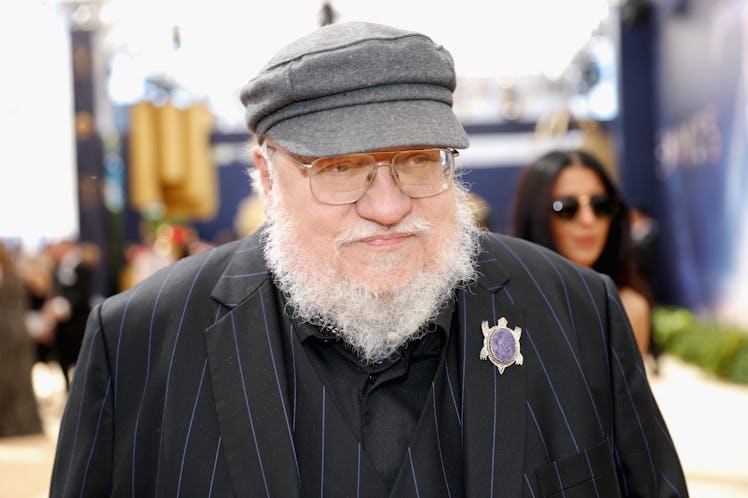
George R.R. Martin Explained How He Created The 'Game Of Thrones' Villains
PBS' newest series The Great American Read has been exploring this country's favorite novels and writers from over the last few centuries. There are 100 books selected who are competing for the title. The eight-episode series explores different facets of each story, and how they handle different common tropes in fiction. Naturally, A Song of Ice and Fire, the novels the Game of Thrones TV show is based on, are on the list. George R.R. Martin's quotes about Game Of Thrones characters and how he handles these tropes have been a fascinating insight into why his story resonates with the American public.
Unlike some of the books on the list, like Mark Twain's Tom Sawyer, Martin is still here to give a direct insight into his writing process. His interviews with host Meredith Vieira have cropped up in several episodes so far. But this past week's installment, which focused on "Villains and Monsters," was one where A Song of Ice and Fire was one of the highlighted stories. This is because Martin's villains have a tendency to show softer sides when they think no one is looking.
According to Martin, this is deliberate. Though his fans see his characters, like Cersei Lannister, as irredeemable villains, he never writes any of them as such.
I don’t try to write anyone who’s, ‘Oh, I’m a villain. Let me get up today and just go out and do villainy and pull the world [in]to darkness.' They all have grievances. They all have wounds, and they have things that drive them to do the things that they do.
This makes sense, especially for characters like Jaime Lannister, who began the tale as a villain. For heaven sake, he threw Bran out of a tower window and crippled the boy for life. It was the first impression he made on readers in the very beginning of the story! And yet, ask any reader of the series if Jaime is a villain and the answer comes back no. He is loyal to the bone, a Hufflepuff in lion's clothing.
But how does this explain a character like Ramsay Bolton? There are no redeeming characteristics in the former bastard of Roose Bolton. Not that Roose was a good guy, but at least he wasn't an abusive sadist. His son, on the other hand, has shown no softer sides, not on the TV show or on the page. In fact, most of his behavior on the page is far worse than what he does on the show, because even showrunners Benioff and Weiss have limits, as did the actor who played him, Iwan Rheon.
But even though Martin seems to have overlooked some of his creations, on the whole, he is correct. The "shades of grey" aspects to his world are what drew many readers to him when they first came out, and it's partly why the show is such a success today.
Voting for The Great American Read is still ongoing at PBS. Meanwhile, Game of Thrones will conclude on HBO sometime in 2019.